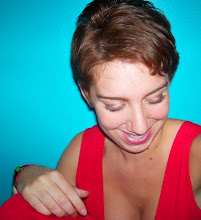On Wednesday, I was going to head to Dipali’s house for a visit. I call before I jump in a CNG (autorickshaw). She gives the phone to her husband Barun. It is really loud in the background and all I can understand is, “baby… shooting… hospital…”
Umm, what?
He sounded fine, not upset or stressed so I patiently wait in Dhaka traffic to get to their house. Dipali comes down to get me, and we head to their apartment. In her room, is Dipali, Dulal, their mother, Dulal’s wife Meethu Mammi, and her son Sudho. He’s about 10 months old and the cutest thing. All he does is stare at me but cries when I hold him. I am reminded of Mum Mum: we all lounge on the master bedroom’s bed, playing with the baby. Soon, Dipali says that we are leaving. Dipali, Meethu Mammi, the baby and myself head downstairs, walk onto the street, down a back street and suddenly in this person’s house. There are people running in and out of the house, yelling at each other, grabbing things. I realize: I’m on a movie set. Barun is a journalist but sometimes directs. Slowly the phone conversation reveals itself: the ‘baby’ is in this episode of the soap opera and Barun is ‘shooting’ near the ‘hospital’ around the corner from the apartment.
Ooooooh!
We sit down on this bed in this large room and Dipali pushes me in front of these two young Bangladeshis, about my age. I look at them and they turn to me and say, “Hi, we’re from Florida.” Praise Allah – American accents! Turns out their names are Emy and Sam, born in Bangladesh but were raised in America. Their parents moved their business to Dhaka so they are here for bit renewing their papers. They are awesome and we chat the whole evening.

billboard of a Bangla movie
There are actresses and actors running about, changing, putting on make-up sleeping inbetween scences. Emy tells me that it is a soap opera that taken place during the Liberation War in 1971. We watched one scene where a couple reveals to the parents they are married. The father is upset, but the friend jumps into the scene with mishti to soften the blow. Emy said that she is unimpressed by Bangladeshi cinema. I haven't seen much and I tried to compare to Indian cinema, and she argued, "Indian cinema at least has good production quality at this point. Here we are still stuck in the 70s. In some movies, you can still see the hand of the sound guy holding the microphone."
It starts to rain, so we head up to this woman’s apartment. Emy heads inside with me, thank God, because then she can translate the havoc around me. Being the token foreigner, I frequently assume that I am being talked about, especially when I hear keys words like, "America... scholarship... ekta bochor (one year)..." They always ask if I know Bangla, which I respond I am learning (note to self: look up the Bangla word for 'slowly'). But instead of understanding that I don't know much yet (at this point I had four classes), they still try to speak. So the best phrase I have learned is "ami bujhi na" -- I don't understand. Sitting around, Emy and I share our frustrations of America and BD: governments, culture, selfishness and capitalism, she’s great to talk to. She decided, since she's here, to take some classes in the University. There is an entry exam similar to the SATs, but here in Bangladesh, you must know English to pass the exam.


Proof of Bangla hospitality the hostess serves samosa and mishti. Samosas are this triangle pastry stuffed with vegetables or meat, and mishti are these Munchkin-sized treats drowned in liquid sugar. I think these alone are the reason that many Bengalis have diabetes.
After a bit, it starts pouring and it’s getting late so Dipali insists that I stay, but I just wanted to go home. She is nervous about sending me home by myself but I have class at 8am. Solution: they arrange for the production boy to sit in the CNG with me all the way to my apartment, and hour ride in traffic, then go back to the shooting. Mind you, it’s 8:30pm, it’s not that late but it’s dark and I am nervous to head back by myself. The whole ride the production boy Alal and I sit in silence, not knowing the other’s language, bouncing through Dhaka at night, food stands lit by candlelight and just as much traffic as mid-day. In the background is the last call to prayer of the day. I sit back in the CNG and let the city pass by.





I know I talked to you already about this, but it still sounded like fun. To be behind the scenes on a movie set, no matter where it is, sounds exciting. It will be awesome to see the movie and recognize the scene you saw.
ReplyDelete